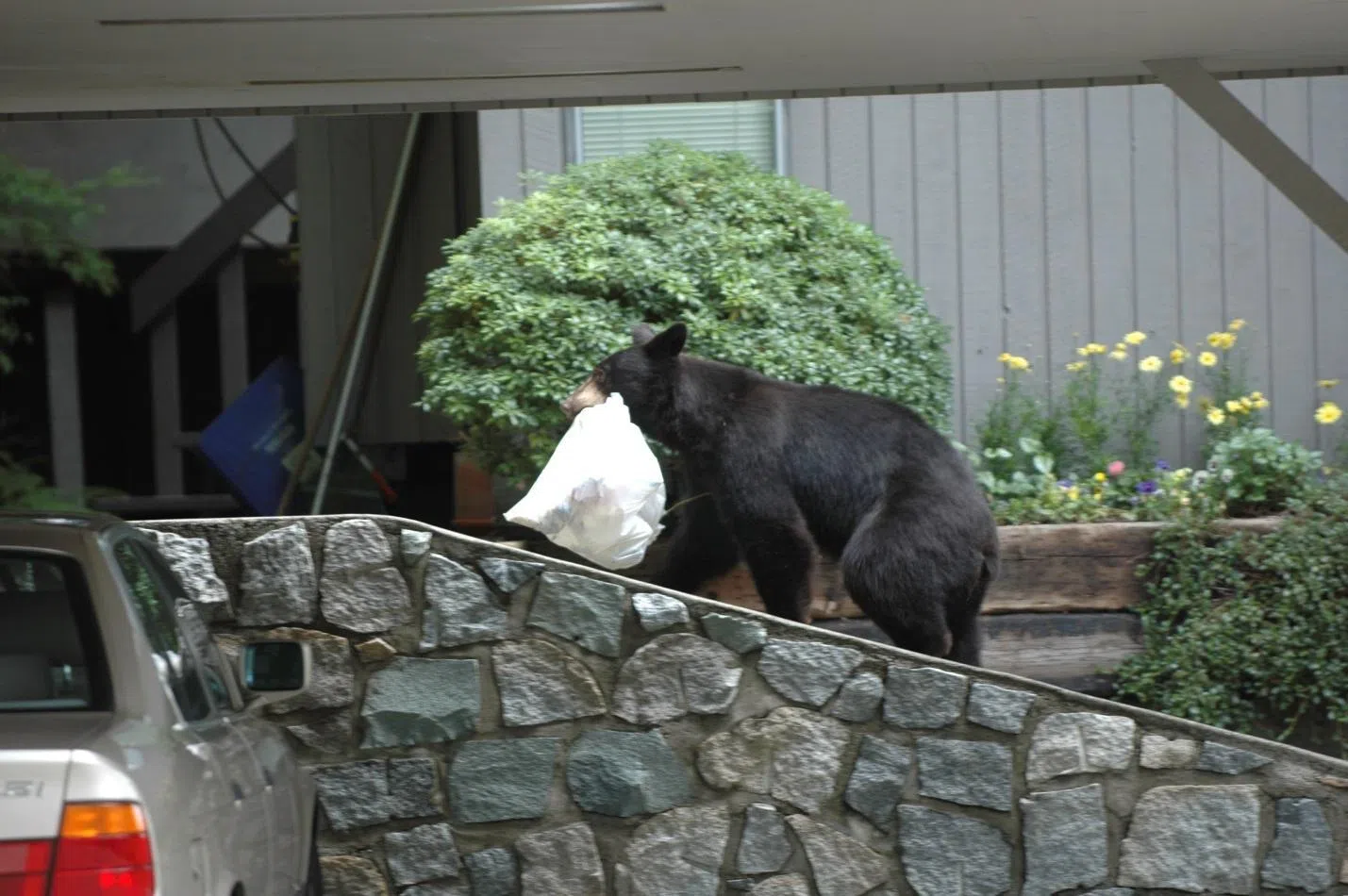
Humans blamed for jump in black bear complaints in Nanaimo area
NANAIMO — Vancouver Island black bears are awake and following their noses to a favourite target, according to a BC Conservation Officer Service official.
Central Island acting Sgt. Steve Ackles told NanaimoNewsNOW there have been dozens of human-bear conflict calls this month in the central island area.
The major culprit drawing bears out of the woods is unattended garbage cans, Ackles said.
“Every year we have the same type of issues, people really have to step up,” he said. “It’s a people problem, not a bear problem.”



